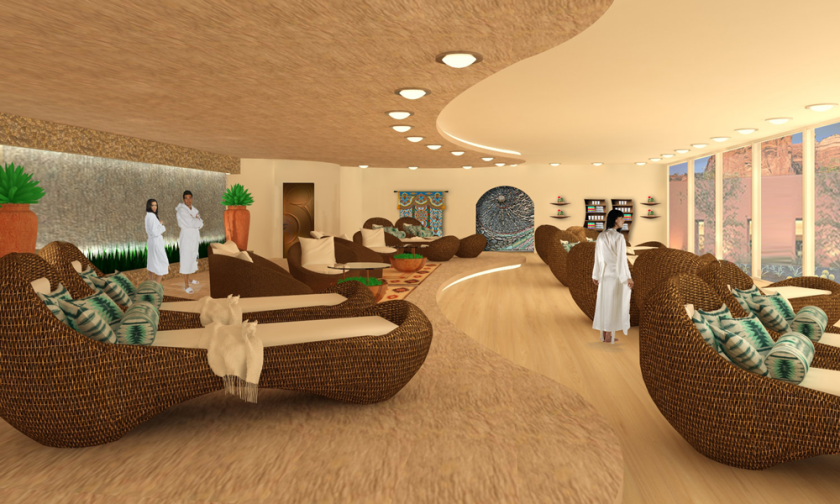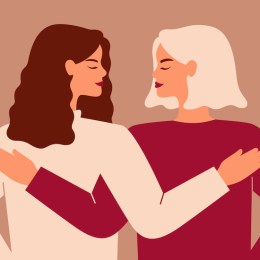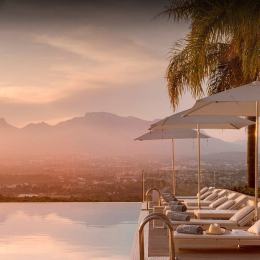Have you ever walked into a space – whether a home or a business – where every fibre of your being tells you “something’s not right”, even though you have no idea why? And it makes you feel baaaad.
Similarly, have you ever lived or worked in a space where you feel you can’t be “you” to the best of your ability- again, no idea why?
Either that, or you’ve been a guest or client in a home or business and feel so ill at ease for no obvious reason that you’ve not wanted to go back?
Spaces have energy. We’ve talked about this before many times at SPA+CLINIC but now the concept is taking on “official” status at the annual Global Wellness Summit, being held in Palm Beach, Florida, October 9-11.
The rise of the “healthy meeting,” with more nutritious food, movement and mindfulness for attendees, is a major global trend.
But the 500+ delegates to GWS will experience a first: the transformation of all conference spaces by a unique process called “purposeful design” for human wellbeing.
Partnering with New York-based EcoChi, a company that blends modern, evidence-based design principles (like biophilia, biomimicry and environmental psychology) with millennia-old strategies (ie, Chinese feng shui, the design wisdom of the Mayans, or Vastu Vidya principles from ancient India), the GWS spaces will be transformed into places that ignite attendees’ senses and enhance their brainpower and wellbeing.
EcoChi’s system, marrying green practices with lessons learned from science and ancient cultures, has been globally recognised as a groundbreaking wellness design standard, and has been implemented in residences, workplaces, restaurants and hospitality properties around the world since 2009.
EcoChi’s founder and president Debra Duneier, author of EcoChi: Designing the Human Experience, will present on The Experience of Purposeful Interior Design.
“In a three-month design process, I’ve worked with EcoChi architect and interior designer Denise Pezzulo to create a unique experience for Summit delegates that uses natural elements, geometric and mathematical measures, and environmental psychology, to transform how people will feel at the conference: making them comfortable, energised, focused, and in time with the natural rhythms of life,” says Debra. “Because life is lived – and conferences are experienced – the way they are designed.
“Spaces that we spend time in impact us as we go about our lives. Our actions, energy and thoughts, as well as our physical wellbeing, are all profoundly influenced by our surroundings.
“The design, colour scheme, textures, furnishings, accessories and lighting in our interiors stimulate our senses and shape how we feel about ourselves and others.
“Light can cheer us up, create a relaxed mood, stress us out, intensify our experience, give us an eerie feeling, focus our attention, create a romantic environment and more.
“Light also influences our circadian rhythms. Most life forms on our planet have circadian rhythms. It is a repetitious pattern based on the natural cycles of day turning to night, night to day.
“In most cases, our ability to sleep or stay awake is determined by our exposure to light. We are the only species that deliberately ignores innate biological rhythms for the sake of lifestyle.
“Whether it is a night shift at a job, travel, socialising until dawn or even typing away on our devices into the night, we are obliterating our natural biological clocks.
“During the day, not only are we processing information on what we see, but our eyes are also gathering information about how much blue is in the light.
“A Harvard Medical School study revealed that blue light made people feel sharp and attentive, improved memory and reduced sleepiness.
“Basically, blue light kept people awake and intensified their emotions.
“A 2013 Journal of Neuroscience report showed that red in lighting had no effect on circadian rhythms at all which makes it a great choice for environments frequented during nighttime hours.”
Food for thought for a future way of life in your home or business …




